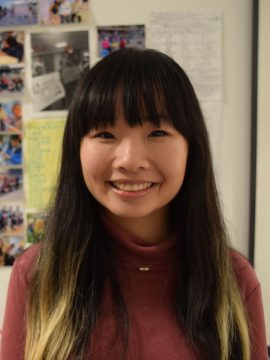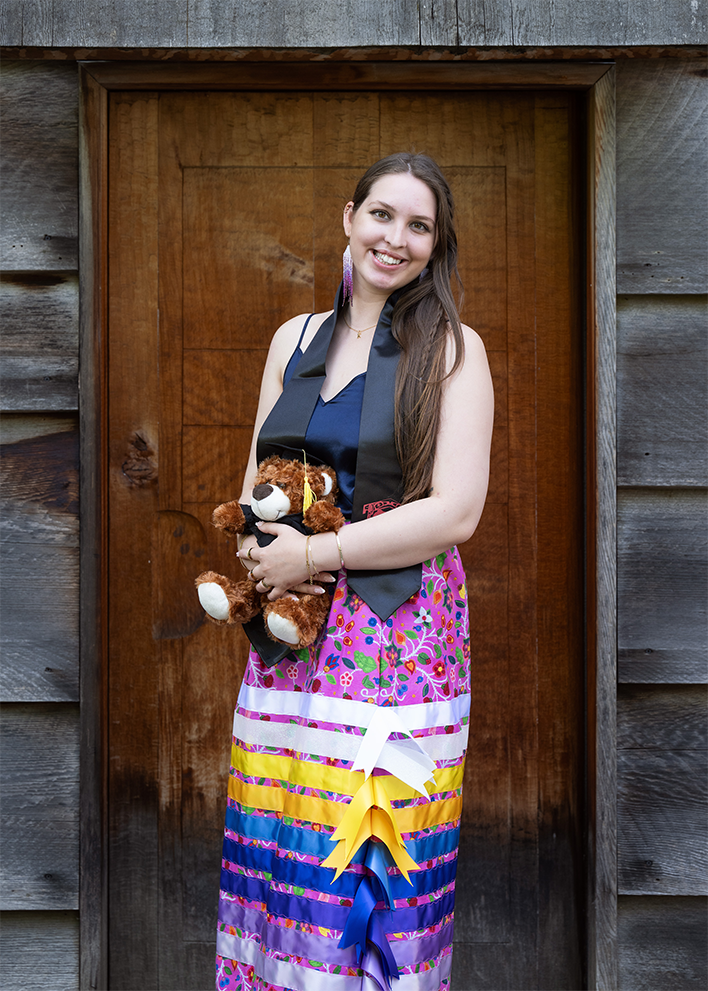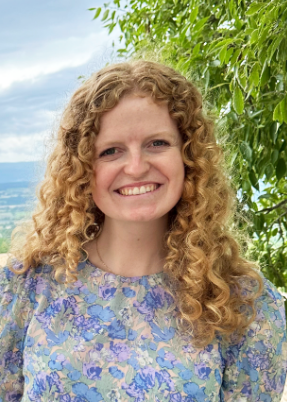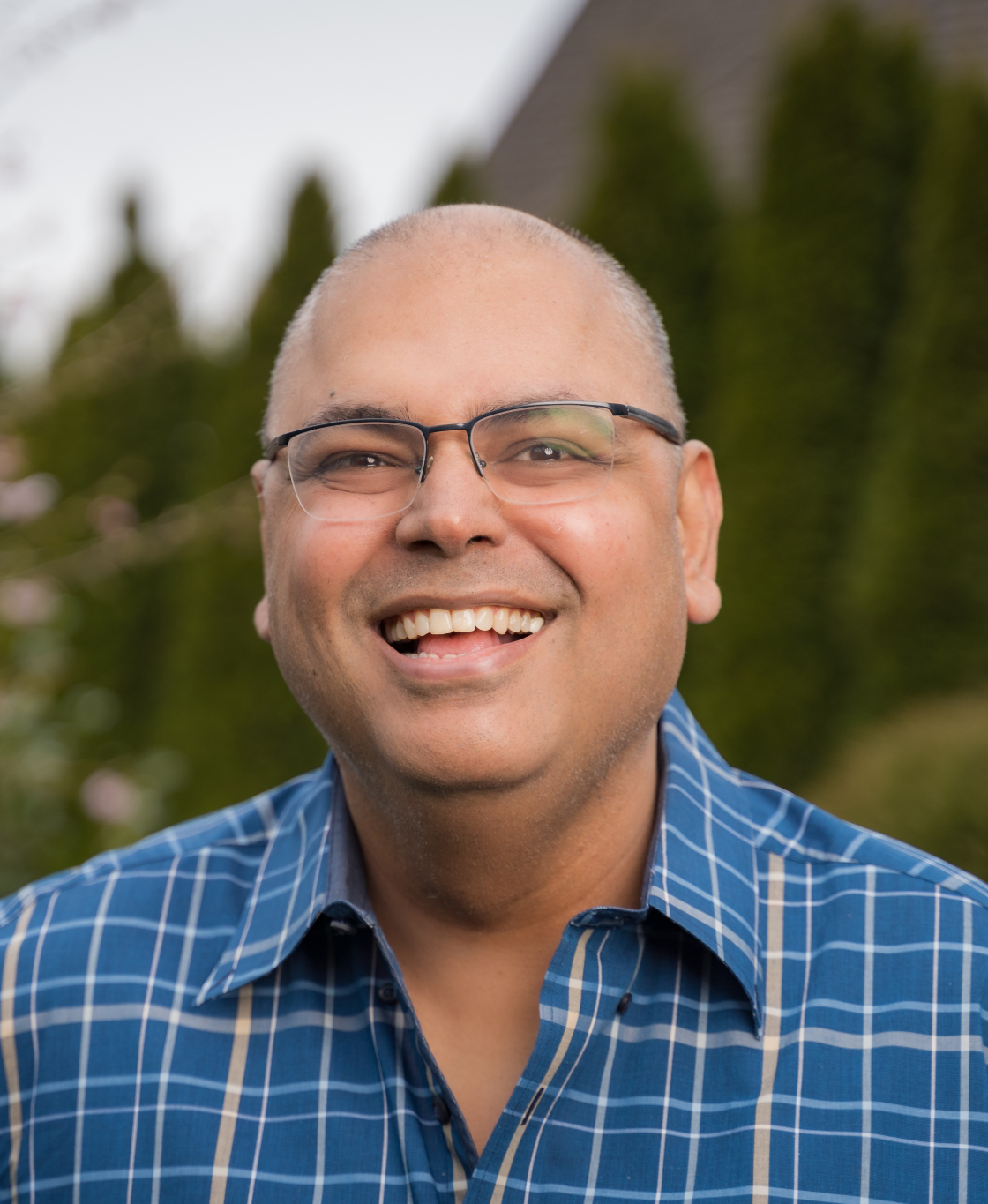Yulanda Lui

Within a year of graduating from UBC with a major in Gender, Race, Sexuality and Social Justice (GRSJ) and a minor in Asian Canadian & Asian Migration Studies (ACAM), Yulanda Lui had started her own nonprofit: Yarrow Intergenerational Society for Justice. Yarrow connects volunteer youth with Chinese seniors in need of language services and case management. “You come to us with a problem and we work to solve it,” says Yulanda. Sometimes that’s as simple as translating a phone call, but together with founding partner Chanel Ly, they hope to tackle large problems within social systems to transform for the better. As their second major fundraiser wrapped up, Yulanda sat down to talk with Arts Alumni.
What did your own community look like growing up? How has it informed the work you’re doing now?
I grew up in a Toronto neighbourhood where there were lots of different immigrants from many different countries and backgrounds. I was really lucky to be able to grow up in my cultural language and my cultural community. Coming to Vancouver by myself, I realized in my first year that was definitely lacking for me. I created Yarrow because I wanted that connection to my cultural community and to be involved in Chinatown.
How did you end up choosing to study Gender, Race, Sexuality and Social Justice (GRSJ)? Was that your original plan?
Actually, I started off in sciences and my plan was to do bio-psych. I was always interested in gender studies and anti-racism, but I never did it academically – it was a personal interest of mine. So I decided to take one GRSJ course in first year just for fun. It really interested me. Then I wanted to double major in psychology and GRSJ. But after Professor Chris Lee came to one of my GRSJ classes and introduced ACAM, I left psych behind and did GRSJ and ACAM.
How have your studies in GRSJ and ACAM informed the work you’re doing now?
Both Gender Studies and ACAM gave me the words to describe a lot of what is going on in the community. Building this organization, there can be a lot of pressure to do it well. Gender Studies and ACAM gave me an understanding of social oppression, social systems, and how nonprofits can play a role in those in both good ways and in bad ways. Because we get to build this from the ground up, we have the ability to start from scratch and build an organization the way we want it to look like. Fundraising can cause a lot of stress, but we want to be an organization that understands the social context and serves people in a more just way.
What do you enjoy about the work? What do you find challenging?
It’s really awesome to be able to create an organization. Not many people get that opportunity. I’m really lucky. What I enjoy the most is being able to work with seniors and youth and see the relationships that are being built. Doing this for over two years, I’ve seen people take those relationships and build friendships outside of the structure we’ve created. That’s really amazing. Our vision is to build an intergenerational, thriving community in Chinatown and to see that in action in small ways is really cool.
What’s been challenging is having people come to us with problems that are really big. If it’s a problem of language access at hospitals – yes, I can find someone to go with you to the hospital – but this is going to be a challenge that you’ll have for the rest of your life. It’s challenged us to think about what we can be doing beyond just that one-on-one work. Part of the reason behind our fundraiser is to help us make sure that we fund the core stuff so we can keep thinking about how we can make bigger changes.
How did your UBC experiences and involvement lead you to where you are now?
I was the coordinator of the Pride Collective at UBC, a community resource group, and I did that for four years. A lot of those skills were very transferrable to the work of coordinating volunteers and planning events. Of course, working with Chinese seniors is different, but some of those facilitation skills were definitely transferrable.
How have connections with other alumni helped you get established?
I did my practicum with Gender Studies here at Yarrow, which gave me the ability to put more time into volunteering. During my practicum, I had the opportunity to create the volunteer program in a more substantial way. Some of our volunteers are actually ACAM alumni, because that group was really small—my graduation was about five people—so we all know each other. I still keep in touch with Chris Lee [Program Director] and Szu Shen [Program Manager] from ACAM. They’ve really helped with spreading news about our fundraiser or when we’re looking for volunteers. One of my old GRSJ classmates used to work for Pride in Arts and in the last year we’ve had opportunities to collaborate with them. They’ve been a great resource because they’re more established as a nonprofit.
What advice would you give to students or alumni interested in nonprofit work?
First: it helps to volunteer if you can while you’re in school. Take the opportunities to do practicums. Really build those relationships and connections so you have the context to do the work well in the community. Second: put in the time and energy to take care of yourself, both your mental health and your emotional health. Burnout is so common in nonprofits. People I work with keep reminding me that if you don’t make time for yourself, you won’t be able to do this work for much longer. If you really want to make an impact and make change, you need to remember to take a break now.
What advice would you give to yourself as a first year student?
I wish I could tell myself that I will get to this point. It’s ok: I graduate, I get to do this awesome project, things are going to work out.
To learn more about Yarrow Intergenerational Society for Justice and the volunteer opportunities available, visit yarrowsociety.ca.
Yulanda Lui



Within a year of graduating from UBC with a major in Gender, Race, Sexuality and Social Justice (GRSJ) and a minor in Asian Canadian & Asian Migration Studies (ACAM), Yulanda Lui had started her own nonprofit: Yarrow Intergenerational Society for Justice. Yarrow connects volunteer youth with Chinese seniors in need of language services and case management. “You come to us with a problem and we work to solve it,” says Yulanda. Sometimes that’s as simple as translating a phone call, but together with founding partner Chanel Ly, they hope to tackle large problems within social systems to transform for the better. As their second major fundraiser wrapped up, Yulanda sat down to talk with Arts Alumni.
What did your own community look like growing up? How has it informed the work you’re doing now?
I grew up in a Toronto neighbourhood where there were lots of different immigrants from many different countries and backgrounds. I was really lucky to be able to grow up in my cultural language and my cultural community. Coming to Vancouver by myself, I realized in my first year that was definitely lacking for me. I created Yarrow because I wanted that connection to my cultural community and to be involved in Chinatown.
How did you end up choosing to study Gender, Race, Sexuality and Social Justice (GRSJ)? Was that your original plan?
Actually, I started off in sciences and my plan was to do bio-psych. I was always interested in gender studies and anti-racism, but I never did it academically – it was a personal interest of mine. So I decided to take one GRSJ course in first year just for fun. It really interested me. Then I wanted to double major in psychology and GRSJ. But after Professor Chris Lee came to one of my GRSJ classes and introduced ACAM, I left psych behind and did GRSJ and ACAM.
How have your studies in GRSJ and ACAM informed the work you’re doing now?
Both Gender Studies and ACAM gave me the words to describe a lot of what is going on in the community. Building this organization, there can be a lot of pressure to do it well. Gender Studies and ACAM gave me an understanding of social oppression, social systems, and how nonprofits can play a role in those in both good ways and in bad ways. Because we get to build this from the ground up, we have the ability to start from scratch and build an organization the way we want it to look like. Fundraising can cause a lot of stress, but we want to be an organization that understands the social context and serves people in a more just way.
What do you enjoy about the work? What do you find challenging?
It’s really awesome to be able to create an organization. Not many people get that opportunity. I’m really lucky. What I enjoy the most is being able to work with seniors and youth and see the relationships that are being built. Doing this for over two years, I’ve seen people take those relationships and build friendships outside of the structure we’ve created. That’s really amazing. Our vision is to build an intergenerational, thriving community in Chinatown and to see that in action in small ways is really cool.
What’s been challenging is having people come to us with problems that are really big. If it’s a problem of language access at hospitals – yes, I can find someone to go with you to the hospital – but this is going to be a challenge that you’ll have for the rest of your life. It’s challenged us to think about what we can be doing beyond just that one-on-one work. Part of the reason behind our fundraiser is to help us make sure that we fund the core stuff so we can keep thinking about how we can make bigger changes.
How did your UBC experiences and involvement lead you to where you are now?
I was the coordinator of the Pride Collective at UBC, a community resource group, and I did that for four years. A lot of those skills were very transferrable to the work of coordinating volunteers and planning events. Of course, working with Chinese seniors is different, but some of those facilitation skills were definitely transferrable.
How have connections with other alumni helped you get established?
I did my practicum with Gender Studies here at Yarrow, which gave me the ability to put more time into volunteering. During my practicum, I had the opportunity to create the volunteer program in a more substantial way. Some of our volunteers are actually ACAM alumni, because that group was really small—my graduation was about five people—so we all know each other. I still keep in touch with Chris Lee [Program Director] and Szu Shen [Program Manager] from ACAM. They’ve really helped with spreading news about our fundraiser or when we’re looking for volunteers. One of my old GRSJ classmates used to work for Pride in Arts and in the last year we’ve had opportunities to collaborate with them. They’ve been a great resource because they’re more established as a nonprofit.
What advice would you give to students or alumni interested in nonprofit work?
First: it helps to volunteer if you can while you’re in school. Take the opportunities to do practicums. Really build those relationships and connections so you have the context to do the work well in the community. Second: put in the time and energy to take care of yourself, both your mental health and your emotional health. Burnout is so common in nonprofits. People I work with keep reminding me that if you don’t make time for yourself, you won’t be able to do this work for much longer. If you really want to make an impact and make change, you need to remember to take a break now.
What advice would you give to yourself as a first year student?
I wish I could tell myself that I will get to this point. It’s ok: I graduate, I get to do this awesome project, things are going to work out.
To learn more about Yarrow Intergenerational Society for Justice and the volunteer opportunities available, visit yarrowsociety.ca.



